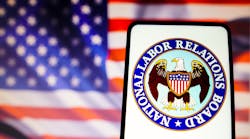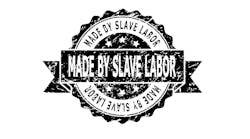ANALYSIS
The National Labor Relations Board (NLRB) has issued a decision declaring that all employer work rules that could possibly be viewed as restricting employee organizing efforts are now presumed to be illegal under federal labor law.
Among other things, lawyers warn this means that employers need to review their rules and employee handbooks to make sure they don’t run afoul of the new standard, which suddenly makes illegal many long-standing work rules that had been deemed acceptable up until now and leaves the others on shaky ground.
Regardless of how much diligence employers choose to exercise, however, the new standard is so sweeping that they must prepare for the fact that this this new framework will now allow nearly any workplace rule to be interpreted as interfering with existing federal labor law rights and protections.
Employers must scrutinize all workplace rules, policies and procedures—current and future—through the lens of the new test and brace for unfair labor practice charges and litigation to be lodged against them regarding any and all rules governing employee behavior that may currently be in place, explain attorneys Emily Harbison, Joshua Sallmen and Eduardo Vargas of the law firm of Reed Smith.
In addition, they say employers should monitor further board activity on this issue, because rulings striking down workplace rules as unlawful likely will continue to be handed down for as long as the current board is in place. It is not yet known whether any employer groups will attempt to mount legal challenges against this radical change of course in labor regulation.
Nor has there been any discussion so far of the possibility of Congress attempting to pass legislation to reverse the NLRB decision, but while such a bill might pass the Republican-controlled House, pro-labor Democrats continue to control the Senate and President Biden would never sign such a measure. In fact, other federal agencies have pursued an aggressive pro-union agenda since the president was sworn in.
Over recent decades during the course of different presidential administrations the NLRB has changed these rules to reflect the ideological bent of the board majority, which is presidentially appointed, and the board under President Biden has been no different in this regard. If anything it has been more energetic when it comes to undoing decisions made by its Republican predecessors under Trump and in actively promoting an agenda designed explicitly to advance the unionization of the American workforce.
The legal basis for the NLRB’s new position is a provision of the National Labor Relations Act (NLRA) called Section 7, which is designed to protect the rights of employees when it comes to organizing and preparing for a vote to decide whether to recognize their representation by a labor union at their worksite.
But beyond that, over the years the NLRB also has held that Section 7 rights protect employees’ unencumbered ability to discuss wages and working conditions in their workplace at any time.
For example, the board cited Section 7 earlier this year when it removed the ability of employers to restrict their employees’ use of profanity in situations where that kind of verbal expression can be interpreted as touching on the subjects of wages and working conditions. Since the new Biden board took power, Section 7 changes also have been widened to include pro-union insignia and attire worn by employees in the workplace as well as their ability to electronically record meetings with employers unhindered by workplace rules.
A New Threat to Employers
The new standard arose from a case involving a dispute between the Stericycle Inc. company and a Teamsters union local, and thus the NLRB decision bears the employer’s corporate name. In application, the Stericycle standard—when considered as a whole—is likely to be aggressively enforced by future NLRB decisions and enforcement actions taken by its regional offices and General Counsel Jennifer Abruzzo in a way that will invalidate many common-sense and ordinary work rules, employment policies, and employee handbook provisions that were previously deemed lawful, emphasize attorneys for the law firm of Morgan, Lewis & Bockius, who cite the board’s own language in the decision to make their point.
Among the problems for employers they cite include the fact that the initial General Counsel burden of proof is low. A rule will be presumptively unlawful if the General Counsel is able to assert that the particular rule “has a reasonable tendency to chill employees from exercising their Section 7 rights.”
The attorneys point out that the initial burden also is described by the board as being whether “an employee could reasonably interpret the rule to have a coercive meaning,” and as a result this burden will be deemed satisfied “even if a contrary, noncoercive interpretation of the rule is also reasonable.”
The attorneys add that when determining whether a rule is presumptively unlawful, the board says it “will interpret the rule from the perspective of an employee who is subject to the rule and economically dependent on the employer,” who fears being disciplined, and “a typical employee interprets work rules as a layperson rather than as a lawyer.”
When evaluating whether the NLRB General Counsel has satisfied the initial burden, “the employer’s intent in maintaining a rule is immaterial,” the board explains. Even if an employer proves that a “legitimate and substantial business interest” exists and is advanced by a particular work rule, employment policy, or employee handbook provision, maintenance of the rule, policy, or handbook provision will still violate the NLRA unless the employer can prove it was impossible to adopt a “more narrowly tailored rule.”
The following work rules in particular should be reviewed as soon as feasible as they are likely the greatest source of liability, absent modification, the Morgan, Lewis & Bockius attorneys recommend:
- Restricting disclosure of confidential information
- Use of employer technology and tools
- Social media and related activities
- Media and third-party engagement
- Solicitation and distribution rules
- Photography/recording policies
- Anti-harassment policies
- Employee disciplinary rules
- Appearance/dress code policies
- Open-door/internal complaint policies
The Morgan, Lewis & Bockius attorneys add that employers should also consider developing written business justification defining the need for the applicable rule “as is”—and citing contemporaneous evidence and incidents that justify the rule—that could be used during an NLRB investigation or litigation.
Eve Klein and Elizabeth Mincer, who are attorneys with the Duane Morris law firm, also suggest that employers take a closer look at their rules through the lens of the NLRB and ask if a reasonable employee who wants to engage in protected activity believes that your company’s policy restricts them from doing so. “Then, in assessing those policies, document the company’s business justifications and determine whether there are ways to tailor the rule more narrowly such that it accomplishes the company’s business goals, without potentially impinging on employees’ Section 7 rights,” Klein and Mincer recommend.
In the future, the NLRB can be expected to apply the Stericycle standard on a case-by-case basis under a highly speculative light, the attorneys believe. “As such, it will be entirely possible for the board to find that a rule is lawful under one set of circumstances but find a virtually identical rule is unlawful under a different set of circumstances.”




